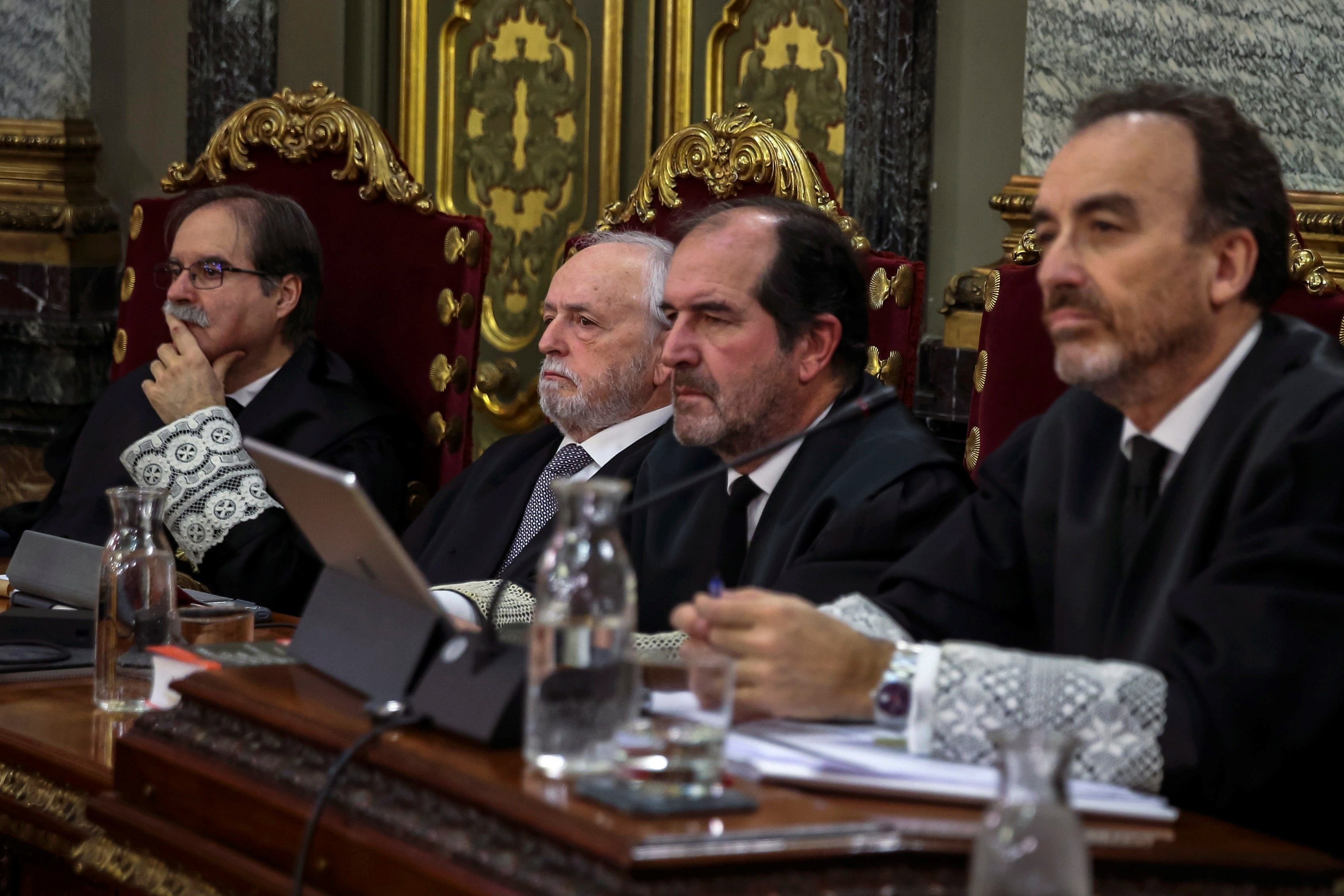In a matter of hours, the verdicts are expected to be announced in the trial of twelve Catalan pro-independence leaders in Spain's Supreme Court. Among the charges prosecutors brought against them are sedición, rebelión and desobediencia. In English, for obvious reasons, these are often rendered as "sedition", "rebellion" and "disobedience", but these translations are somewhat misleading. No two languages are the same, and no two legal systems are the same. So exactly what is it that the defendants are accused of?
Sedition in Spanish law
As defined by article 544 of Spain's Criminal Code, a person is considered to have committed the crime of sedition if, "without [their actions] being covered in the crime of rebellion, they rise up publicly and tumultuously to prevent, by force or outside of legal means, the application of the Law or any authority, official corporation or public official from legitimately carrying out their functions or complying with their agreements or [to prevent the application] of administrative or judicial resolutions."
To put it in plainer language, in Spanish law, sedition requires a "public and tumultuous uprising" against the law or the authorities. This is considerably different from how we generally understand the term in English, namely as being speech or writing that encourages such actions.
The punishment for those who "incited, sustained or directed" sedition or were its "main perpetrators" is 8-10 years in prison, which rises to 10-15 years for those in positions of authority. In either case, defendants will also be banned from holding any public office for the same length of time. "In other cases", those found guilty of sedition will be sentenced to 4-8 years behind bars and banned from any public office related to the crime for 4-8 years.
Rebellion in Spanish law
Article 472 and on of the Criminal Code defines rebellion as a "violent and public uprising" for certain defined ends, including:
- 1. To abolish, to suspend or to modify the Constitution in whole or in part.
- 5. To declare the independence of a part of the national territory.
- 7. To remove any kind of armed force [meaning any branch of the military or police force] from obedience to the government.
The sentencing guidelines for rebellion depend on various factors. At the low end, for "mere participants", they can be a short as 5-10 years in prison. At the other end of the scale, for those who incited or were the main leaders of a rebellion which saw, among other compounding factors, "combat [... with] the sectors loyal to the legitimate authority, damage caused to public or private property [...] or the diversion of public funds from their legitimate investment", it is as high as 25-30 years in prison. All cases also include bans from public office of different categories for different periods of time.
The definition of rebellion is significantly longer than the above summary. It adds, for example, that individual crimes committed during a rebellion will also be punished as appropriate, and that any person in a position of authority who doesn't resist the rebellion will be banned from holding any public office for 12-20 years. However, the points listed above are the key aspects for understanding how rebellion applies to this trial.
Comparing rebellion and sedition, we see that the former requires the uprising to be "violent and public", whereas the latter requires it to be "public and tumultuous". Similarly, rebellion is an uprising aiming to achieve one of a specific set of goals - such as those in the list above - in contrast to sedition which is an uprising based on more general opposition to the law or those who apply it.
Disobedience in Spanish law
The article of the section of Spain's Criminal Code on disobedience cited by the public prosecution service in the pro-independence leaders' case is Article 410.1: "Public authorities or civil servants who openly refuse to give due compliance to judicial rulings, decisions or orders from higher authorities [...] shall incur the penalty of a fine [...] and a ban from holding public office for between six months and two years."

